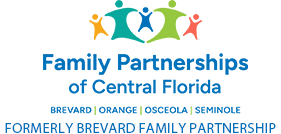MELBOURNE, Fla. – January 8, 2014 – The Florida Department of Children and Families, along with Brevard Family Partnership and Community Based Care partner organizations across the state, welcomed the New Year with a new law that provides teens who turn 18 while in foster care the opportunity to remain in foster care. The new law, which took effect January 1 is meant to model a structure more similar to the families of teens not in foster care but home with their biological parents. “Turning 18 should be a milestone to celebrate but for some young adults in foster care the birthday can bring strong mixed emotions. We want these young people to remain focused on their education and career-building skills as well as know they are still part of a family at 18, rather than feel the entire weight of making it on their own while still a teen,” said Bill D’Aiuto, Regional Managing Director for DCF in Central Florida.
“We’ve always believed that youth who age out of foster care at 18 needed continuing support and Brevard has a very well-developed Independent Living program to assist these young adults with everything from continuing education and housing assistance, to transportation and day care,” said Brevard Family Partnership CEO, Dr. Patricia Nellius. “This new law gives us the opportunity to continue providing a family atmosphere for our young adults who want that supportive atmosphere, in addition to our current services, to help them adjust to the opportunities and responsibilities of adulthood. They’ll have a more well-rounded transition experience and be better prepared to enter society and the workforce and be successful.”
28 teens in Brevard are expected to turn 18 while in foster care this year and be eligible to participate in the extended care program. Young adults who aged out of the foster care system in the past two years are eligible to return to the system, as long as they meet the criteria the new law requires. While these individuals would have been eligible for some services after the age of 18 through the previous model, the proponent for change, Senator Nancy Detert, proposed the new legislation with a goal of reducing the likelihood that youth in foster care would more likely become homeless, incarcerated, or experience substance abuse.
Research shows that approximately 40 percent of adult children under the age of 25 live with a parent. “If 40 percent of adult children aren’t ready to move out of their parent’s home before 25, how can we expect those that have spent time in the foster care system to be ready at 18?” asked John Cooper, CEO of Kid’s Central Inc. “Extending the time allotted to remain in foster care allows our teens to better prepare for independence and establish a stronger foot hold before stepping out on the road to independence,” Glen Casel, CEO of Community Based Care of Central Florida concurred adding, “Extending the age limit for foster care will give young adults a more natural transition to independence while supporting them as they pursue opportunities for post-secondary education or job training. Our new Independent Living program will assist by offering resources to support 18-to-23-year-olds after high school graduation.”
Since January 1 teens are eligible to remain in foster care with their foster parent or caregiver, if they remain active and engaged in their education and career focus, whether that is completing high school, attending a college or university to pursue a degree, or enrolling in a career/vocational program. Teens in extended foster care are also expected to hold a part-time job. While tuition is covered through state waivers, youth are now also eligible for Medicaid until age 26 through the Affordable Care Act. The model also considers that any teen can lose focus or become distracted during these years and allows for their return should they become ineligible at some point.
In response, Community Based Care organizations have been preparing for the new law to take effect, focusing on additional capacity for teens in foster care or new partnerships with organizations that help teens in crisis. “Although this is a step in the right direction for our young people, there is still a tremendous amount of work that needs to be done to make sure the appropriate resources are dedicated to the new program to ensure its success,” added Cooper.
A fall data snapshot found that about 200 teens in Central Florida foster care will turn 18 this calendar year, more than 500 young adults (18-21 yrs.) were currently being served through the previous model of post foster care services. “Brevard Family Partnership and our Community Based Care partners in Central Florida have done a tremendous job preparing for the changes in such a short time,” Nellius said. “For this, everyone in our systems of care is to be commended.”
Those interested in becoming foster parents to children, teens and young adults in need of a home are asked to visit Brevard Family Partnership at www.brevardfp.org, call (321) 752-4650 or visit Florida’s foster care website at www.fosteringflorida.com.
About Brevard Family Partnership
Established in 2004 by a Legislative mandate to privatize foster care and related services in Florida (Section 409.1617, Florida Statutes), Brevard Family Partnership is Brevard County’s lead child welfare agency. Working in partnership with over 70 community organizations, its mission is to protect children, strengthen families and change lives through the prevention of child abuse and the operation and management of a comprehensive, integrated, community-based system of care for abused, abandoned and neglected children, and their families.








